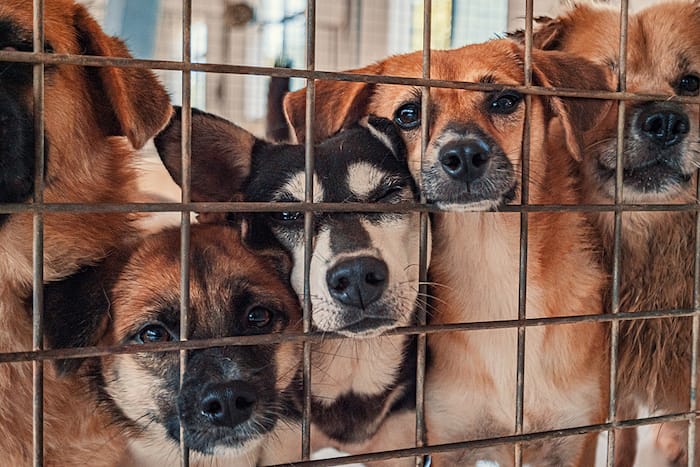If you are passionate about your four-legged friend, you have probably wondered how to become a registered breeder at one point in time. After all, nothing is more rewarding than continuing the bloodline of your favorite pooch and providing other people with canine companionship. However, breeding dogs is not as easy as it may seem. There are many things to consider before you commit to it. Here are some advantages and disadvantages to dog breeding that you should think about.

The Pros
#1 Being able to work with your favorite animal
One of the reasons why responsible dog breeders get into the breeding business is because of their love for canines. They want to be able to produce happy and healthy puppies that will bring great joy to other people. For them, investing time and money to care for animals is a personal commitment.
Dog breeding is often more of a hobby for breeders than it is a profit-making business. They are willing to take on the huge responsibility of advancing their breed so that other people may bring home well-bred puppies. They aim to develop a line of breed-standard pooches and find good homes and families for each.
#2 Being able to encourage safe and responsible dog ownership
There are other outlets where a person can adopt a dog, such as shelters, rescue organizations, and pet stores. While these places provide canines with an opportunity to have a second chance at a home, their animals are often behaviorally flawed, malnourished, and unsocialized. This is why some individuals get into the dog breeding business – to produce puppies that have been bred and raised in a comfortable environment, and sell them to people who will shower them with affection and attention.
Decent buyers know what a well-bred dog looks and acts like. As an ethical dog breeder, you get to provide your purchaser with a good match and guarantee them a healthy background and lineage for every puppy that you sell. You will be able to share your knowledge of your breed and ensure that your dog ends up in a loving household.
#3 Being able to preserve your breed
Many dog breeds, like Dalmatians, Otterhounds, and Pyrenean Shepherds, make excellent pets but are becoming quite rare. This is because modern lifestyles no longer require these breeds’ specific skills, causing people to lose interest in them. Little do humans know that many dog breeds today have very small populations because of the way their choices have changed over the years.
Luckily, canine breeding reduces the likelihood of breed shortage. If you have a rare breed at home and are considering getting into the dog breeding business, you may just be saving your dog from going extinct.

The Cons
#1 The need to have extensive knowledge about your breed
Knowledge is required to be an effective and responsible dog breeder. You must have a deep understanding of genetics, as these will help you select the best mate for your bitch and determine her litter’s appearance, temperament, and health. By knowing your breed well, you will more likely produce a litter with desirable qualities. Furthermore, you will be able to educate potential buyers about the proper caring practices for their desired puppy.
#2 Numerous expenses
There are financial costs attached to responsible dog breeding. For one, you will need a purebred female dog that is at least two years of age before you can let it breed. To ensure that she is raised healthy, you will need to pay for her vaccinations, checkups, and food. Once you have found her right mate, you will have to pay a stud fee that could amount to as much as what you paid to buy your bitch.
When your dog finally delivers her puppies, you will need supplies such as a whelping box, baby scale, heat lamp, and thermometer, among many other things. You will also need to spend money on medical care even if there are no complications.
#3 Consumes time
Conditioning and mating your bitch and raising her puppies is a full-time job. While the mother usually takes care of her litter’s needs during its first couple of weeks, you may still need to care for her puppies should problems, such as lack of milk or death, arise. Once the puppies are weaned, you will need to dedicate time and effort to feeding, training, grooming, and socializing them. In addition, you will need to visit the veterinarian regularly to check for signs of infection or poor health.
Related Reading
